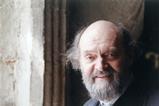Matt Redman wrote his most popular worship song in record time. It’s enduring appeal lies in encouraging Christians to worship God in the pain of our everyday realities, says Derek Walker
Matt Redman once told Premier Christian Radio: “Every song starts with some kind of theme and then you let that grow. I’ve learned over time, if you get an idea for a song, you don’t just sit down and write it there and then.” Most songwriters will no doubt agree with this assessment. But there’s an exception to every rule…
In 2011, Redman spent a few days in his local chapel working on new material with Swedish co-writer Jonas Myrin. They had been working for 15 hours and it was now about 1.30am. Several times during the session, Myrin had wanted to play Redman some chords, but was rebutted. Redman preferred to finish what they had, rather than start something new.
When you start to sing about troubles, you very quickly journey into the compassionate heart of God
But, as Myrin was not normally a pushy person and had tried several times, his friend thought he ought to at least give the music a quick listen. Myrin played him what was to become the chorus of ‘10,000 Reasons’ and it released an automatic response in Redman, matching a few words that he already had written down. He took as his inspiration the opening verse to Psalm 103: “Bless the Lord, O my soul; and all that is within me bless his holy name!”
Whether Redman was lost in a flow of praise, or just keen to get home to his bed before dawn broke, the song was done within the hour. Its one of the fastest songs he’s ever been a part of writing.
Worshipping through trials
The song is comparable to Redman’s earlier hit ‘Blessed be your name’, in that the song’s strength lies in acknowledging the difficulties we face in life yet also urges us to worship God through them. Redman himself lost his father to suicide when he was only seven and had a childhood that he describes as “turbulent.” He and wife Beth have also spoken in the past about their experience of miscarriage.
In a 2016 Church Times interview, Redman noted that everyone experiences pain, heartache and stress, including Christians. Noting the number of laments in the Psalms, he added, somewhat counter-intuitively, “When you start to sing about troubles, you very quickly start to journey into the compassionate, kind, generous, caring heart of God,” observing that it was the songs he has written on these themes that have generated “the most beautiful stories.”
As they stood against a wall, blindfolded and facing the guns, they began to sing
That has definitely been the case with this song - so much so that he compiled examples of some of them into a book of the same name: 10,000 Reasons: Stories of faith, hope, and thankfulness inspired (David C Cook).
One story was that of Reuben Hill, a student at London’s Imperial College who was diagnosed with a brain tumour. Surgeons operated on him using groundbreaking technology, and he had to be awake during part of the procedure, so that they could check that his speech was not being harmed. As the last pieces of his tumour were removed, he sang lines from Redman’s song: “The sun comes up, it’s a new day dawning, it’s time to sing your song again. Whatever may pass and whatever lies before me, let me be singing when the evening comes.”
Another story was of two prisoners, Andrew and Myu, who had spent ten years in a Bali jail for drug smuggling. While there, they had become Christians and experienced a radical change of life, inspiring others to the same transformation. However, as their crime carried the death penalty, they were still due to face a firing squad. As they stood against a wall, blindfolded and facing the guns, they began to sing: “And on that day when my strength is failing, the end draws near and my time has come. Still my soul will sing your praise unending, ten thousand years and then forevermore.”
Hope is near
Redman has admitted that the ‘10,000 years’ was a nod to the final verse of ‘Amazing grace’. He has also mentioned, in both interviews and performance, that this verse, particularly the failing strength and the end drawing near, was influenced by a verse that John Wesley dictated on his deathbed:
“In age and feebleness extreme / Who shall a helpless worm redeem? / Jesus, my only hope Thou art / Strength of my failing flesh and heart / O could I catch one smile from Thee / And drop into eternity!”
The hope contained in this verse has been popular with many at the end of their lives.
In 2012, Redman was in Los Angeles at the Grammy Awards, winning two awards for this song, an experience he described as “special and meaningful.” But he was even more pleased to receive an email the following morning from a woman telling him about her 46-year-old uncle, Charlie Burton, who had just died of cancer. She described the beautiful and profound moment when he was about to be with Jesus and wanted this song played as he left this life. In a video interview with David Grant to launch the 10,000 Reasons book, he asserted: “This is what it’s all about; this is why I write songs.”





































